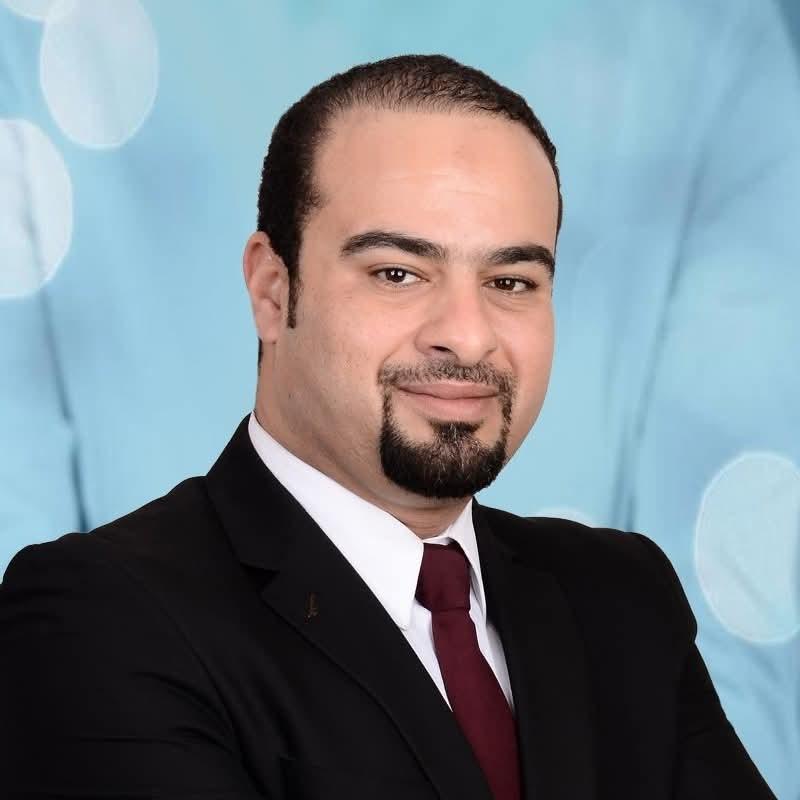Dr. Samah Hamad - Specialist in General Surgery, Laparoscopic Surgery, and Oncology
Specialties:
General Surgery
Laparoscopic Surgery
Oncology
Consultation Fee:
450 EGP
Location:
Madinaty Specialized Clinics, Madinaty, Cairo
About Dr. Samah Hamad:
Dr. Samah Hamad is a specialist in general surgery, laparoscopic surgery, and oncology, with extensive experience of over [number] years in the field. He holds a Master's degree in General Surgery from Ain Shams University and is an active member of the Egyptian Surgeons Association and the Egyptian Obesity Surgery Association. Dr. Samah is known for his use of the latest techniques in surgery, especially in the areas of oncology and laparoscopic surgery, making him an excellent choice for treating complex health conditions, including cancer.
Sub-Specialties:
Stomach Cancer Surgery: Treatment of stomach cancer using advanced surgical techniques.
Liver Cancer Surgery: Performing specialized surgeries to treat liver tumors while preserving liver function.
Colon Cancer Surgery: Precise surgery to remove benign or malignant colon tumors.
Breast Cancer Surgery: Diagnosis and surgical treatment of breast cancer, including partial or total mastectomy.
Prostate Cancer Surgery: Prostate cancer treatment through laparoscopic or traditional surgery.
Gastrointestinal Cancer Surgery: Surgery for tumors affecting the intestines, stomach, and esophagus.
Lung Cancer Surgery: Removal of lung tumors using advanced surgical techniques.
Bone Cancer Surgery: Tumor removal from bones while preserving bone function.
Brain Cancer Surgery: Surgical treatment for brain tumors and neurological conditions.
Obesity and Weight Loss Surgery: Weight loss surgeries like gastric bypass and sleeve gastrectomy.
Trauma and Accident Surgery: Emergency surgical intervention for accident-related injuries.
Abdominal and Laparoscopic Surgery: Using laparoscopic techniques for abdominal issues like appendectomy and inflammatory bowel disease.
Endocrine Surgery: Surgery to treat endocrine disorders, such as thyroid and adrenal gland issues.
Anal Surgery (Hemorrhoids): Surgical treatment of hemorrhoids and other anal conditions.
Additional Services:
Diabetic Foot Care and Follow-up: Specialized care for diabetic patients suffering from foot complications.
Pediatric General Surgery: Surgery for pediatric conditions such as pediatric hernias and appendectomies.
Appendectomy: The removal of the appendix using the latest surgical techniques.
Thyroidectomy: Advanced surgery for treating thyroid disorders such as goiter or tumors.
Why Choose Dr. Samah Hamad?
Extensive Surgical Experience: Dr. Samah Hamad has [number] years of experience in oncology and laparoscopic surgery.
Advanced Techniques: Dr. Hamad uses cutting-edge techniques in oncology and laparoscopic surgery to ensure better outcomes with less pain for patients.
Personalized Care: He offers excellent, personalized care, with thorough post-operative follow-up for quick recovery.
Obesity Surgery Specialist: Dr. Hamad specializes in weight loss surgeries such as gastric bypass and sleeve gastrectomy.
Prime Location: The clinics are located in Madinaty, making it easily accessible for patients from various areas.
How to Book an Appointment:
To book an appointment with Dr. Samah Hamad or for medical inquiries, you can contact the following numbers:
01005863232
01029029621

